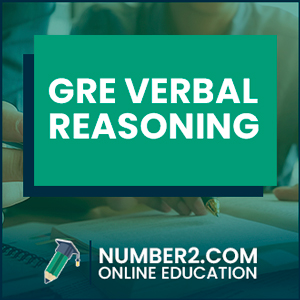 Understanding the GRE Verbal Reasoning Test with Practice Questions
Understanding the GRE Verbal Reasoning Test with Practice Questions
Like most challenges, preparing for your GRE can be difficult even though you will be tested in stuff you learned at high school. Sometimes the GRE score can be intimidating, but that shouldn’t be worrying if you understand the GRE sections and what is required of you.
Simply take the time to study and review GRE verbal practice questions and you will have no problem acing your GRE test.
What is Verbal Reasoning?
Verbal reasoning is one of three areas that GRE evaluates, with the other two being Analytical writing and quantitative reasoning. The verbal reasoning section intends to assess a student’s ability to analyze written content, synthesize collected data, evaluate connections between sentence components, and acknowledge linkages between concepts and words.
Most importantly, verbal reasoning parts of the GRE assume competence in English and are designed to assess the student’s ability to evaluate language differently.
What’s on the GRE Verbal Reasoning Exam?
What Skills are Tested?
The section covers skills such as the ability to make a conclusion regarding the completion of a passage relying on partial information, maintaining an evaluation tone, and interpretation as you read.
In addition, the skills include understanding the meaning of large text bodies and paragraphs and individual sentences and words, summarizing passages and differentiating minor and major points, making inferences, and drawing conclusions from incomplete information.
Types of Questions on the GRE Verbal Reasoning Test
Verbal reasoning covers three sections, including text completion, reading comprehension, and sentence equivalence questions.
Reading Comprehension Questions
Almost half of the GRE verbal reasoning section questions will be reading comprehension questions. In the section. The reading comprehension questions consist of a text passage that ranges from a paragraph to around four or five paragraphs.
This is followed by several questions about the passage’s structure, content, and intent. Passages are based on content discovered in non-academic and academic books and journals and are drawn from the humanities and arts, everyday themes, social sciences, and physical biology.
The questions can be multiple-choice, multiple answers (selecting correct answers), and picking a sentence in the text. You should be familiar with the different types of question formats to be easy for you to answer the questions on the test day. The most vital aspect of the different question types is understanding the distinction between multiple-choice questions.
Notably, the easiest way of distinguishing multiple choice from multiple answer questions is that answers will be in checkboxes instead of bubbles selection, allowing for only one answer.
Text Completion Questions
Text completion questions test the ability to omit certain keywords from passages and ask the student to use the remaining text to select phrases or words to fill blanks and have a meaningful and coherent passage.
The questions structure includes 1-5 sentences with 1-3 blanks with three answer options per blank. It is vital to note that the blanks answers work differently, and one choice will not affect the answer you choose for the other blank. There is only one correct answer, consisting of one valid answer option for each blank; partial answers receive no credit.
Sentence Equivalence Questions
Sentence Equivalence questions are similar to text completion questions since they assess one’s ability to establish a conclusion on how to complete a passage depending o available partial information. Interestingly, they focus on the meaning of the completed sentence.
The questions comprise a single sentence with one blank, and the student will be asked to find two choices that can coherently complete the sentence and produce sentences with the same meaning. Each question will comprise a single sentence with a blank and six answer options. You will select two answer choices for each question, and partially correct answers do not receive a credit.
GRE Verbal Practice Questions
Solving mock exam questions is a key part in your studying process. Here are a few GRE verbal reasoning practice questions to help you study each type of problem you will find on the test.
GRE Verbal Text Completion Practice Test
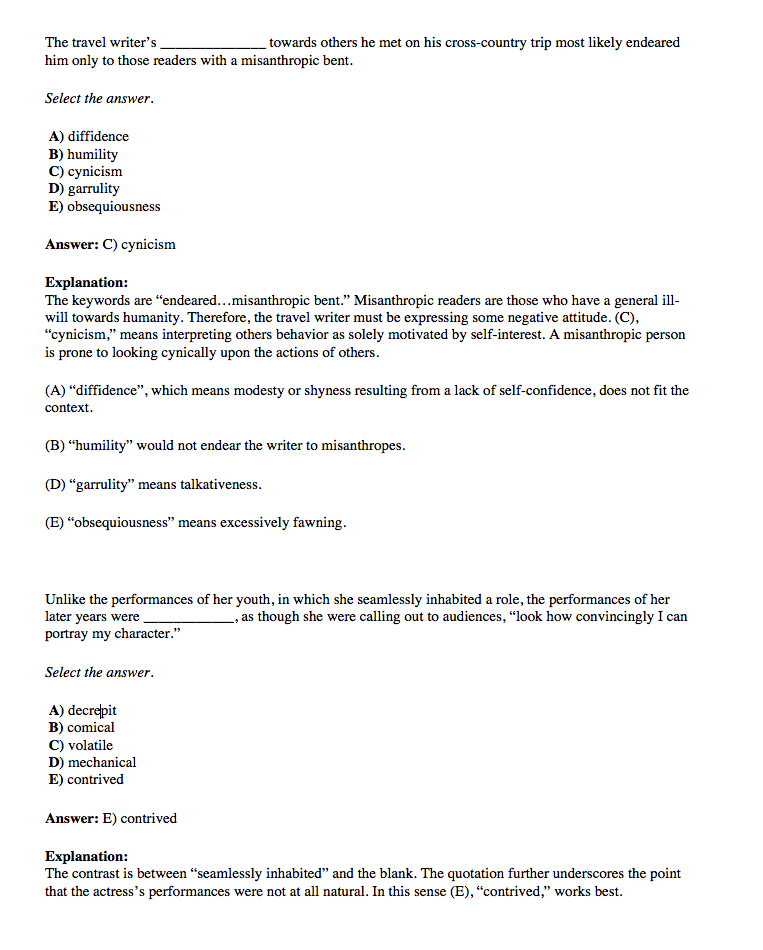
GRE Verbal Sentence Equivalence Practice Test
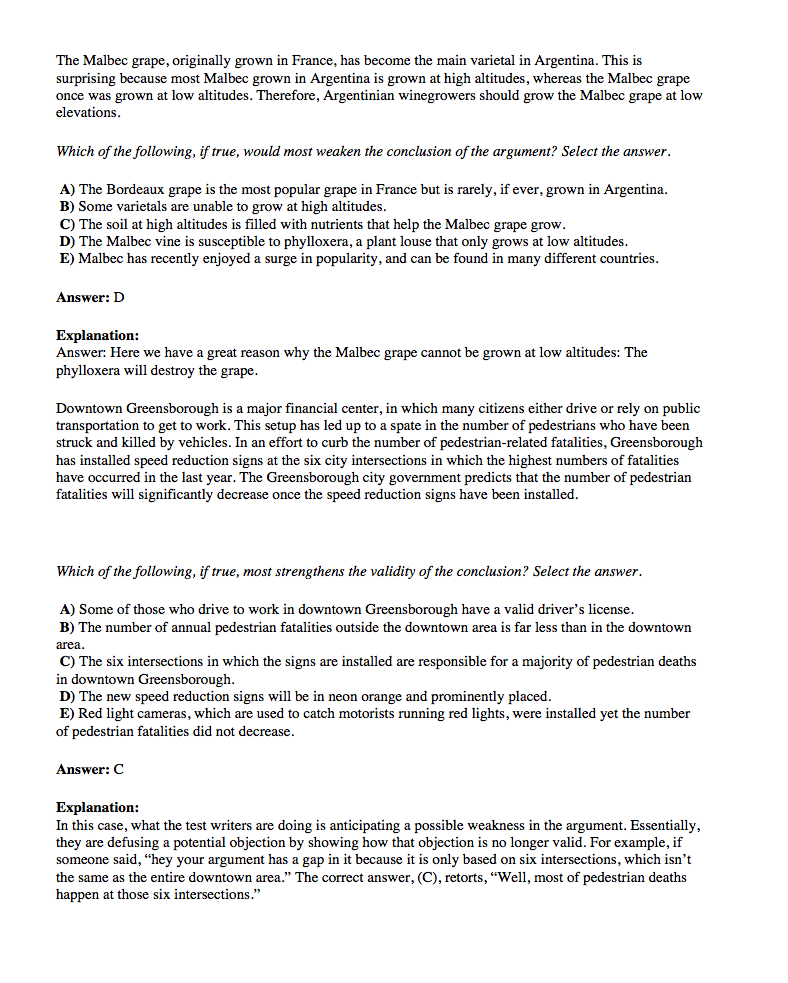
GRE Verbal Reading Comprehension Practice Questions
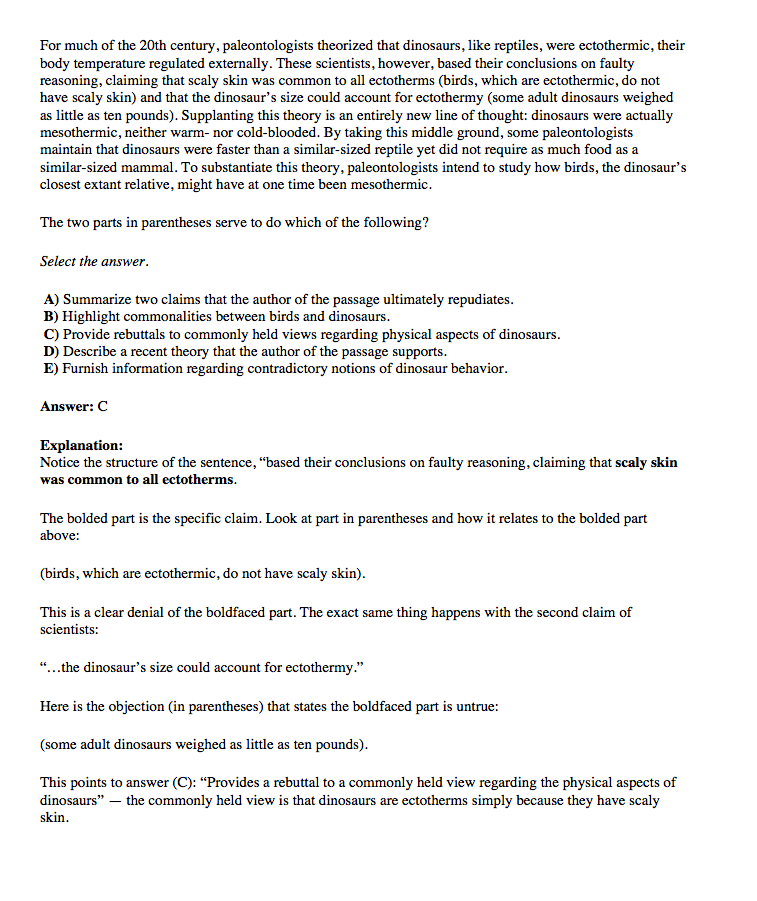
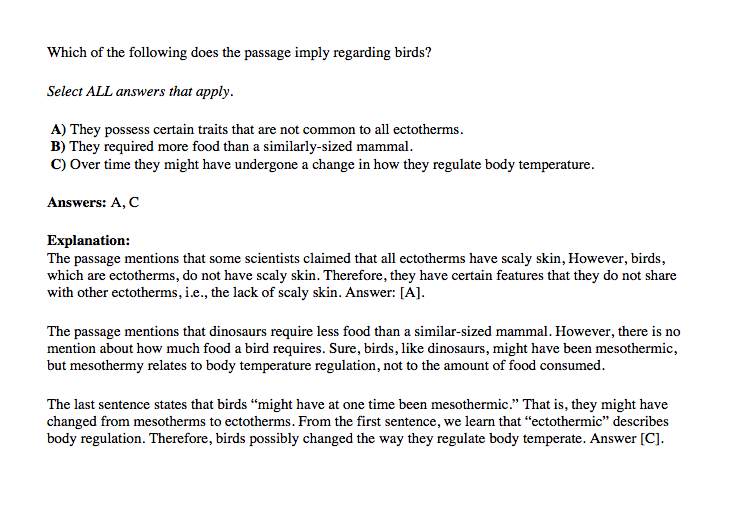
GRE Verbal Reasoning Exam Format & Structure
The GRE verbal reasoning exam is one of the three GREs you will take, and it is divided into two sections and potentially a third unscored section. The time limit for the exams is 30 minutes per section, and you will have to answer around 20 questions for each section. Therefore you have one and half minutes to attempt each question.
The basic format of the questions includes multiple-choice questions whereby one has to pick one answer out of five choices, and some questions may employ alternative formats.
There will be 8-10 reading comprehension questions from passages varying from 150-350 words, 5-6 text completion questions in which a text ranges 1-5 sentences with three blanks and the sentence equivalence questions are between 5 and 6 where you will have to select two answer choices.
How is the GRE Verbal Reasoning Test Scored & Graded?
The verbal reasoning scores range from 130 to 170, and scores from the different tests shouldn’t be compared since the scaling of measures is done separately. However, you cannot score more than 170 or lower than 130 in verbal reasoning.
The score reflects the number of questions you correctly answered and the difficulty level of each section.
What is a Good GRE Verbal Score?
Are all GRE Verbal Questions Graded?
Your score is based on the number of correct answers you get, and besides the scaled scores, you receive a percentile rank. The percentile ranks show how you performed relative to other GRE takers, and they tell graduate schools the worth of your scaled scores.
A good score will depend on the programs you are considering, and the average test score for verbal reasoning is 150.
When can Students take the GRE Verbal Test?
The test is for students looking to join college, and since the GRE scores remain valid for five years, it is vital to take the exam when you have one year after you graduate. You can take it in the first year of college or wait some years before taking it.
What can You Bring to the GRE Verbal Exam?
The test center has small waiting areas, so relatives and friends are permitted to company you. Beverages and food are not allowed into the exam room, and the test administrator will assign you a seat.
If you are doing a paper-based exam, you need to have sharpened pencils and an eraser. For a computer-based exam, you will be provided with a calculator.
GRE Verbal Exam Cost & Fees
The cost GRE test is around $205, but there are other fees such as score reinstatement fee and rescheduling fee.

